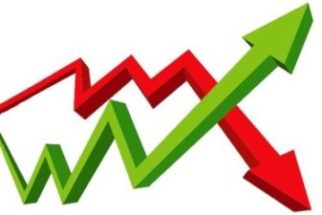
McLeod Group blog by Hunter McGill, June 2, 2022
After shrinking in the final years of the Harper government, Canadian foreign aid was back up in 2021 to where it had been in 2011 and 2012: 0.32% of Gross National Income. An achievement of sorts, but not a big one, especially considering that the international target, agreed at the United Nations in 1970, is 0.7%. Where did the additional funds go and how does the Canadian increase compare to its peers?
The latest figure comes from the OECD annual report on official development assistance (ODA) provided in 2021 by the member countries of its Development Assistance Committee (DAC). Collectively the DAC countries’ performance represented 0.33% of their GNI, so Canada remains slightly below average. Its generosity ranks 13th among the 29 member countries.
Overall, DAC aid flows increased by 4.4% in dollar terms over 2020. Much of the increase was due to donors’ support for COVID-19 pandemic activities, notably vaccines. Deleting these costs, ODA grew by only 0.6%, which isn’t much when considering global poverty levels and needs. Of a total of US$178.9 billion in ODA, COVID-19 activities represented 10.5% or US$18.7 billion.
According to the OECD, the US$404 million (or 8%) increase in the level of Canadian aid from 2020 was due to exceptional pandemic activity support and increases in climate financing. Canada reported US$1,497 million for COVID-19 activities in 2021, of which vaccine donations were US$84 million.
A volatile element of ODA reporting in 2021, as well as previous years, was what is called in-donor refugee costs. Under DAC rules, donors can count as ODA the costs of “hosting” refugees for the first year of residence in the receiving donor country. For the DAC group of countries, in 2021 this amounted to US$9.3 billion, or 5.2% of total ODA flows. While this is a lot of money, it is down from a peak of US$16 billion or 11% of total ODA in 2016. Given events so far this year, one wonders what the levels reported will be for 2022, especially for countries hosting Ukrainian refugees.
With respect to in-donor refugee costs, Canada claimed US$464 million or 7.4% of total Canadian ODA (US$6.3 billion), down from US$631 million in 2020, or 12.5% of ODA. It is important to remember that this is money that does not flow to developing countries, but in our case stays in Canada. Even if allowed under DAC rules, why claim it as ODA? Among DAC member countries, Australia, Japan, South Korea and Luxembourg chose not to.
So, in 2021 Canada increased its ODA by 0.01% of GNI, but the growth came through exceptional measures to help combat the COVID pandemic and an increase in climate financing. So far as can be seen, no additional funding was allocated for implementation of the Feminist International Assistance Policy to empower women and girls, and no increase in ODA to realize the United Nations Sustainable Development Goals, which the Prime Minister highlighted in his mandate letter for the new Minister of International Cooperation, Harjit Sajjan.
Canada continues to be in the middle of the donor pack in terms of ODA volume, and in 2021 increased its aid volume through one-off expenditures which don’t support global sustainable development. With challenges facing the world in the form of food and energy price and availability issues, conflict in many developing countries – not only in Ukraine – and constraints to international financial flows in the form of aid, investment, remittances and other transfers, Canada should do better.
What are the prospects? Judging from the most recent federal budget, there isn’t much to look forward to (see the post-budget McLeod blog). With the conflict in Ukraine sucking up resources at an unprecedented rate, and conflict and climate change worldwide resulting in over 100 million forcibly displaced persons plus the effects of the COVID pandemic, needs are soaring. Increased real flows of predictable foreign aid from donors like Canada can contribute to peace and security. Time for the Liberal government to put money where its mouth is.
Hunter McGill is Senior Fellow, School of International Development and Global Studies, University of Ottawa.
